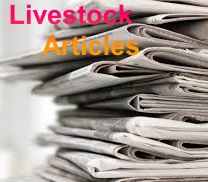EU Insect Protein Market In ‘financial Turmoil’
EU insect protein market in ‘financial turmoil’
By Elizabeth Schroeder | 17 February 2025 | 12:30 pm
The insect protein industry in the EU is coming under increasing pressure, with many role players calling for an overhaul of regulations.
Since the arrival of insect protein products on the EU market in 2021 and following years of growth, many producers are now reportedly in dire straits.
According to the euractiv.com, when insect protein products first entered the food industry about 10 years ago, it was met with “widespread enthusiasm”.
“The product was expected to provide a sustainable protein supply for the world’s growing population.”
The first insect-based food product received authorisation in the EU in 2021.
The company, Ynsect established what was termed “the world’s largest factory for insect proteins and fertilisers” during the same year in the north of France.
However, in September 2024, Ynsect reported “financial turmoil”, and, according to Euractiv, filed for safeguard proceedings for companies at risk of insolvency.
The second largest producer in France, Agronutris, was also recently placed under safeguard proceedings, while the market leader in Ireland, Hexafly, was bought out in 2023 after the company also experienced financial difficulties.
“Several factors contribute to this slowdown, including high production costs, the broader economic climate, and evolving European regulations,” a spokesperson for the International Platform of Insects for Food and Feed (IPIFF) told Euractiv.
According to the Euractiv report, meeting the requirements for consistent temperatures and lighting in insect farming resulted in high energy consumption.
Coupled with the high cost of raw materials, such as feed, these requirements could account for up to 90% of production costs.
At the same time, it was found that while European consumers had accepted insect-based pet food, they were less accepting of insect proteins in the use of “human food”.
Demand thus remained “a challenge” in Europe, IPIFF said.
As a result, the Ynsect factory, for example, was projected to produce 200 000t of Tenebrio molitor (yellow meal worm) meal a year, mainly aimed at human consumption, but was forced to refocus on pet food in 2023.
Despite this move, the company reported a net loss of €80 million (about R1,5 billion) in the same year, according to the Les Echos newspaper.
However, industry leaders have said that the EU could save the sector by making some “regulatory tweaks to expand market opportunities”.
One such example would be to allow insect frass to be marketed to farmers for use as fertiliser or as biogas.
Another opportunity for the industry would be for farmed insects to be able to feed on supermarket food waste that contained meat and fish products, Euractiv said.
Despite the challenges faced by the industry in the EU, investment in the sector is continuing, with the biotech company Tebrio establishing what was expected to become the world’s largest insect farm in Salamanca, Spain.
The company was expecting to produce more than 100 000t of protein products and lipids per year.
To prevent getting into financial difficulties, IPIFF was encouraging companies to “decentralise” their production chain and focus on specific segments of the market, while also forging local partnerships.
“This could include the upcycling of co-products generated by agri-food industries, which can then be reused as substrates for insects or the outsourcing of the breeding/fattening of farmed insects by local farmers,” the organisation stated.

.jpg)






